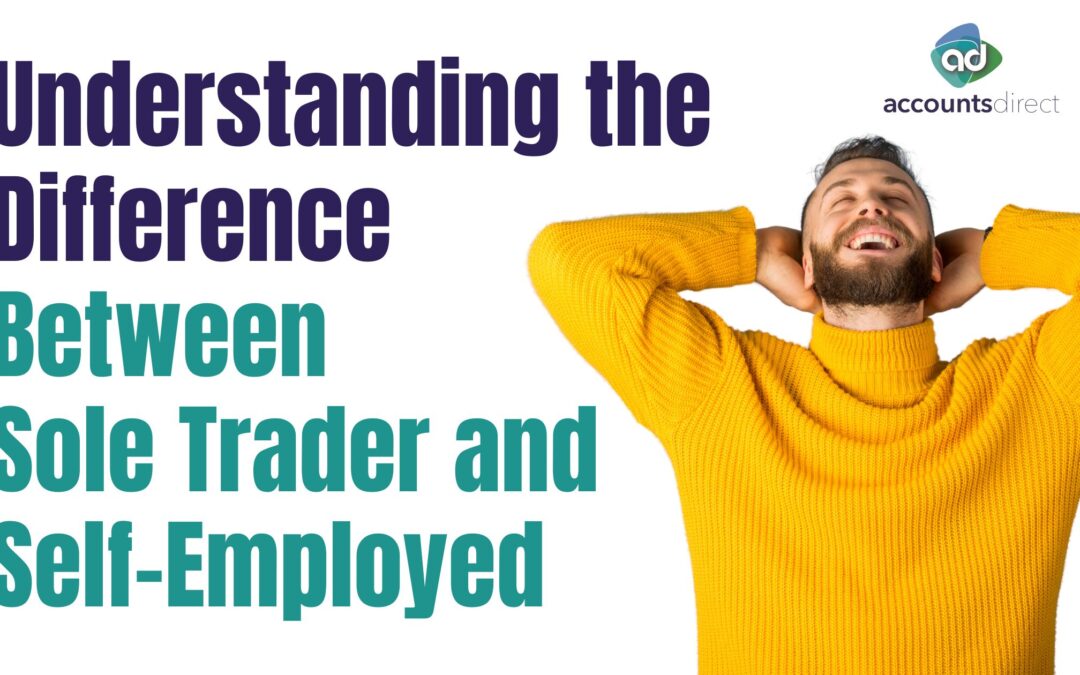Navigating the world of business ownership can be a bit of a maze, especially when it comes to understanding the different labels and structures.
Two terms that often cause confusion are “sole trader” and “self-employed.” While they are related, they are not exactly the same.
Let’s break it down in simple terms to clear up any confusion.
What Does It Mean to Be Self-Employed?
Being self-employed means you work for yourself and are not under an employer. You run your own business and have control over how, when, and where you work.
It’s a broad term that encompasses various business structures, including sole traders, partners in a partnership, and even those who run limited companies.
Who is a Sole Trader?
A sole trader is a specific type of self-employed person. As a sole trader, you run your business as an individual.
You are the business. It’s the simplest and most common way to start a business, especially if you’re just testing the waters.
Key Differences Between Sole Trader and Self-Employed
While all sole traders are self-employed, not all self-employed people are sole traders.
Here are some key differences:
Business Structure:
Sole Trader: This is a one-person business where there is no legal distinction between the owner and the business. You are responsible for all aspects of the business, including debts and losses.
Self-Employed: This term can refer to anyone who works for themselves, including those who run partnerships or limited companies.
Liability:
Sole Trader: As a sole trader, you have unlimited liability, meaning your personal assets can be used to cover business debts.
Self-Employed: If you are self-employed under a different structure, like a limited company, your liability might be limited to the amount you invested in the business.
Taxation:
Sole Trader: You report your income and expenses through a Self Assessment tax return and pay income tax and National Insurance based on your profits.
Self-Employed: Taxation varies depending on the business structure. Partners in a partnership share the profits and are taxed individually, while limited companies pay corporation tax.
Record Keeping:
Sole Trader: You need to keep detailed records of income and expenses. It’s straightforward but crucial for accurate tax reporting.
Self-Employed: Record-keeping requirements can vary. Limited companies, for example, must keep more detailed records and submit annual accounts to Companies House.
Pros and Cons of Being a Sole Trader
Pros:
Simplicity: It’s easy to set up and run. You don’t need to register with Companies House, just with HMRC.
Control: You have complete control over your business decisions.
Privacy: Your business affairs are private, unlike limited companies, which must file accounts publicly.
Cons:
Liability: You have unlimited liability, meaning personal assets are at risk.
Funding: Raising capital can be harder compared to a limited company.
Perception: Some clients and suppliers may perceive sole traders as less credible than limited companies.
Pros and Cons of Other Self-Employment Structures
Partnerships:
Pros: Shared responsibility, pooled resources, and varied expertise.
Cons: Shared liability and potential for disputes.
Limited Companies:
Pros: Limited liability, potential tax advantages, and improved credibility.
Cons: More regulatory requirements, higher administrative costs, and less privacy.
Making the Choice
Choosing the right structure depends on your business goals, the level of risk you’re willing to take, and how you plan to grow your business.
Many start as sole traders for simplicity and switch to a limited company as their business grows and the benefits of limited liability and potential tax savings become more significant.
How Accounts Direct Can Help
At Accounts Direct, we understand the ins and outs of business structures. Our team can provide tailored advice to help you choose the best path for your business.
Whether you’re starting out as a sole trader or considering the transition to a limited company, we’re here to support you every step of the way. From tax planning to legal advice, we’ve got you covered.
Understanding the difference between being a sole trader and self-employed is crucial for making informed business decisions. Each structure has its benefits and drawbacks, and what’s right for you will depend on your unique circumstances and ambitions.
If you’re unsure, don’t hesitate to reach out to Accounts Direct for a friendly chat about your options.
Ready to take the next step in your business journey? Contact Accounts Direct today and let’s make your business aspirations a reality

